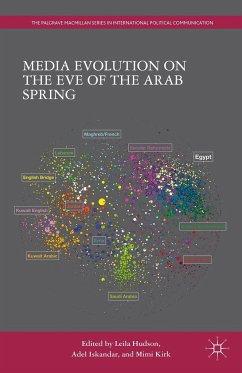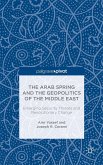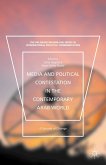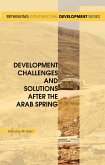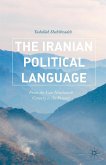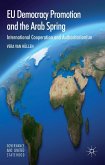"This volume will immediately be recognized as a definitive collection on the evolution of the Arab mediascape, not just before the Arab uprisings - the book's primary period of focus - but since 2010 as well. It's breaking down of the new media phenomena into 'older' and 'newer' new media and the nuanced reading of how latter produced the former, its elaboration of a critical theory that captures the difficulty in moving from critically engaged audiences to fully agentic counter publics, and how elites come to grips with and manipulate the forces behind this transition, offers a paradigm for focused interdisciplinary research into the production and contestation of contemporary cultures. What's more, the chapters provide analyses of various aspects of the still inchoate 'new media' universe with a deep yet clearly focused ethnographic vision, and equally important, with a level of theoretical innovation and clarity that sets the stage for Arab media studies in the coming decade. Nocourse on the history of Arab media or the Arab Spring should miss this book." - Mark LeVine, professor, Middle East History University of California Irvine
"A must-read analysis of the impact of the communications revolution on the Arab world and of its contribution to the mass risings of the Arab spring. Brings together novel research on a whole host of central topics including the development of the new vocabulary needed to identify the various communities of men and women engaged in the Arab blogosphere." - Roger Owen, Emeritus Professor of Middle East History, Harvard
"This innovative edited volume by Hudson, Iskandar, and Kirk is at the cutting edge of Arab media theory. It traces the dizzying changes in the media ecosystem over the past fifteen years. The chapters, written by luminaries in the field, cover a breadth of topics from video games and digital Islam, to soft power and the satellite network wars. An indispensable volume for students of Arab politics, contemporary history, and media studies." - Linda Herrera, associate professor of Education Policy, Organization and Leadership, University of Illinois, USA
"In the excitement and epistemological confusion about the role of media in the recent Arab uprisings, this rich volume provides a timely reminder that the relationship between media, representation, activism, identity construction, imaginaries and publics has a long history preceding the 2011 events. In speaking to, and addressing the complex, multi-layered phases of technological adoption and use in the Arab world, the chapters provide a holistic and vivid image of a complex and multi-layered media ecosystem that is dynamic and fluid, involving producers and audiences, systems of power and publics, and a system that arose over, and within, specific socio-historical formations. The volume is a welcome contribution to the critical study of media, society and culture in the Arab world and will be particularly useful to students and scholars in the field." - Dina Matar, senior lecturer in Arab Media and Political Communication, SOAS, University of London, UK
"A must-read analysis of the impact of the communications revolution on the Arab world and of its contribution to the mass risings of the Arab spring. Brings together novel research on a whole host of central topics including the development of the new vocabulary needed to identify the various communities of men and women engaged in the Arab blogosphere." - Roger Owen, Emeritus Professor of Middle East History, Harvard
"This innovative edited volume by Hudson, Iskandar, and Kirk is at the cutting edge of Arab media theory. It traces the dizzying changes in the media ecosystem over the past fifteen years. The chapters, written by luminaries in the field, cover a breadth of topics from video games and digital Islam, to soft power and the satellite network wars. An indispensable volume for students of Arab politics, contemporary history, and media studies." - Linda Herrera, associate professor of Education Policy, Organization and Leadership, University of Illinois, USA
"In the excitement and epistemological confusion about the role of media in the recent Arab uprisings, this rich volume provides a timely reminder that the relationship between media, representation, activism, identity construction, imaginaries and publics has a long history preceding the 2011 events. In speaking to, and addressing the complex, multi-layered phases of technological adoption and use in the Arab world, the chapters provide a holistic and vivid image of a complex and multi-layered media ecosystem that is dynamic and fluid, involving producers and audiences, systems of power and publics, and a system that arose over, and within, specific socio-historical formations. The volume is a welcome contribution to the critical study of media, society and culture in the Arab world and will be particularly useful to students and scholars in the field." - Dina Matar, senior lecturer in Arab Media and Political Communication, SOAS, University of London, UK

